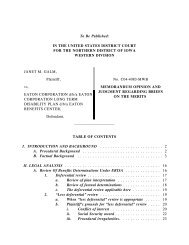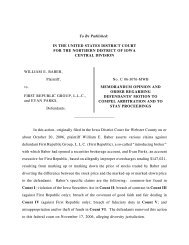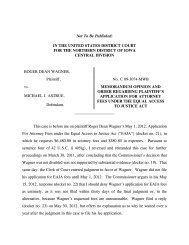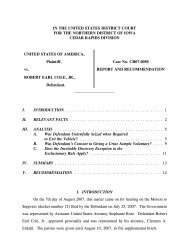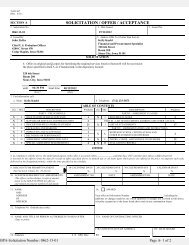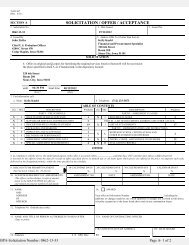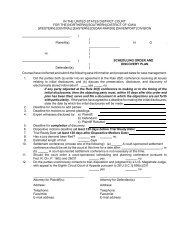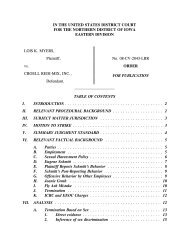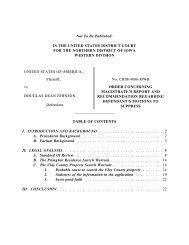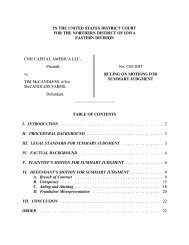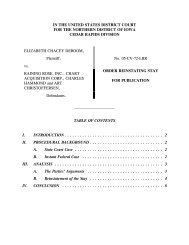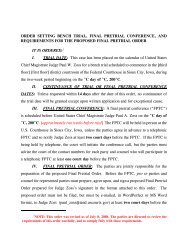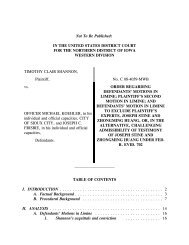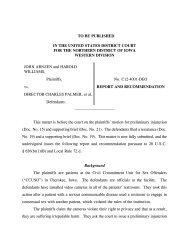IN THE UNITED STATES DISTRICT COURT FOR THE NORTHERN ...
IN THE UNITED STATES DISTRICT COURT FOR THE NORTHERN ...
IN THE UNITED STATES DISTRICT COURT FOR THE NORTHERN ...
Create successful ePaper yourself
Turn your PDF publications into a flip-book with our unique Google optimized e-Paper software.
practice. Moore, 423 U.S. at 124 & 140-42. The illegal conduct for which the physician<br />
in Moore was found guilty is similar to the conduct alleged in the Indictment:<br />
[H]e gave inadequate physical examinations or none at all. He<br />
ignored the results of the tests he did make. He did not give<br />
methadone at the clinic and took no precautions against its<br />
misuse and diversion. He did not regulate the dosage at all,<br />
prescribing as much and as frequently as the patient demanded.<br />
He did not charge for medical services rendered, but graduated<br />
his fee according to the number of tablets desired. In practical<br />
effect, he acted as a large-scale “pusher[,]” not as a physician.<br />
Id. at 142-43.<br />
Other courts have held this provision is not unconstitutionally vague. In United<br />
States v. Collier, 478 F.2d 268 (5th Cir. 1973), the Fifth Circuit Court of Appeals<br />
considered whether the CSA was unconstitutionally vague as applied to a physician. More<br />
specifically, Collier considered whether the phrase “in the course of his professional<br />
practice” was vague. Collier, 478 F.2d at 270-71. The court held the provision was not<br />
unconstitutionally vague, stating “statutes affecting medical practice need not delineate the<br />
precise circumstances constituting the bounds of permissible practice.” Id. at 272. Since<br />
Collier, courts have continued to apply this standard to physicians and other medical<br />
professionals. See United States v. Tran Tron Cuong, 18 F.3d 1132, 1137 (4th Cir. 1994)<br />
(“a licensed physician who prescribes controlled substances outside the bounds of his<br />
professional medical practice is subject to prosecution and is no different than a large-scale<br />
‘pusher.’”) (quoting Moore, 423 at 143); United States v. DeBoer, 966 F.2d 1066, 1068-<br />
69 (6th Cir. 1992) (denying void-for-vagueness challenge to 21 U.S.C. § 841(a)(1) and<br />
21 C.F.R. § 1306.04(a) because a pharmacist’s responsibilities giving rise to unlawful<br />
conduct was “clearly define[d]” in 21 C.F.R. § 1306.04(a)); United States v. Roya, 574<br />
F.2d 386, 390-91 (7th Cir. 1978) (rejecting argument suggesting CSA was<br />
unconstitutionally vague as applied to the defendant-physician); United States v.<br />
Rosenberg, 515 F.2d 190, 197 (9th Cir. 1975) (holding same); United States v. Prejean,<br />
17



